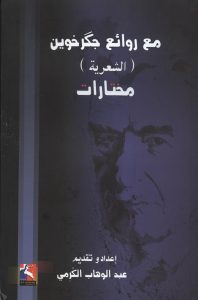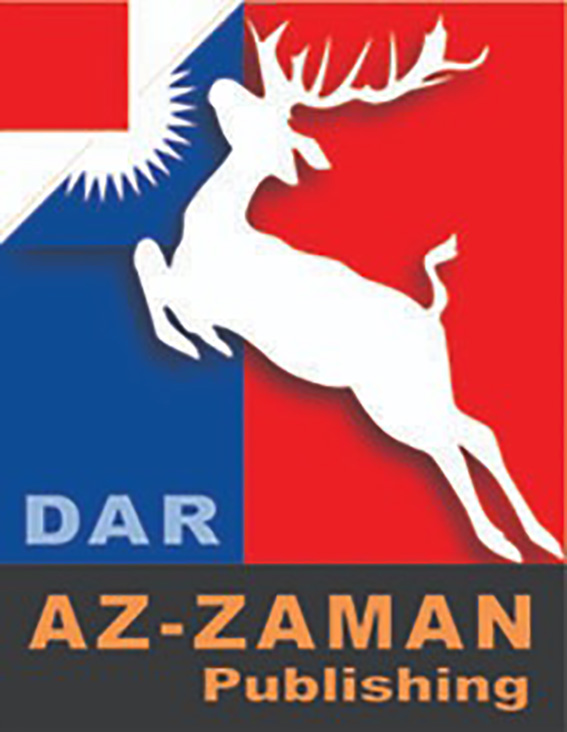![]() Cigerxwîn
Cigerxwîn
![]() Al Zaman
Al Zaman
![]() Syria
Syria
![]() Poetry
Poetry
![]() Kurdish
Kurdish
It is an anthology of Cigerxwîn’s poetry from eight collections in which his various poetic tendencies are highlighted: intellectual, artistic, liberal social nationalist as well as his position towards women rights.
The poet imitated older generations of poets in an apparent attempt to prove his artistic ability to emulate recognized Kurdish poets.
At the same time, he developed some poetic contents and images pertaining to modern society. The poet refined poetic language and replaced words from foreign languages with Kurdish ones. By doing this, he bypassed the problematic linguistic mosaic adopted by the ancient Kurdish poets.
The real name of Cigerxwîn, which means in Kurdish "liver bleeding", is Sheikmos Hassan. He was born in southeast Turkey in 1914. At the beginning of the First World War, his family sought refuge in Amuda, near the city of Qamishli in present-day northeastern Syria. He studied theology and became a cleric in 1921. Along with others, he founded a Kurdish association. In 1946, he moved to Qamishli and started getting involved in politics. In 1948 he joined the Syrian Communist Party and in 1954 he was the party’s candidate for the Syrian Parliament. He left the Communist Party in 1957 to establish the "Azadi" (Freedom) organization which will soon be united with the Kurdish Democratic Party in Syria.
He was imprisoned in Damascus in 1963 and eventually exiled to the city of Al-Suwayda. In 1969 he moved to Iraqi Kurdistan, where he became involved in the Kurdish uprising led by Mustafa Barzani. In 1973 he went to Lebanon, where he published his widely known collection of poetry, Kîme Ez? (Who am I?). In 1976, he returned to Syria, but three years later, at the age of 75/76, he fled again to Sweden where he managed to publish several collections of poetry there.
He died in Stockholm at the age of 80/81. His body was returned to Kurdistan and buried in his home in Qamishli.
مختارات من شعر جكرخوين من ثمانية دواوين حيث يتم إبراز نزعاته الشعرية المختلفة: الفكرية والفنية ونزعته القومية الاجتماعية التحررية بالإضافة إلى موقفه من المرأة.
يصنف شاعرنا من ضمن الكلاسيكيين في معظم شعره ما عدا ومضات بسيطة في ديوانه الثالث حيث تتوفر أحياناً ملامح إبداعية وتجديدية.
اتبع الشاعر أسلوب التقليد ليثبت قدرته الفنية على مضاهاة العمالقة والنجوم الكرد في ميدان الشعر وقد وفق في بعض الأحيان ونجح بإبراز نفَسه الخاص وملامحه الشخصية والنفسية بل أضاف بعض المعاني العصرية الجميلة.
كما طور بعض المضامين والأخيلة الشعرية إلى آفاق المجتمع الحديث كما أنه هذب اللغة الشعرية ونفى عنها الكلمات الأجنبية مستبدلاً إياها بكلمات من اللغة الأم – الكردية – متجاوزاً الفسيفساء اللغوية التي اعتمدها الشعراء الأقدمون فجاءت قصائده نقية خالية من تلك الفسيفساء اللغوية التي ابتلى بها الشهر الكردي!
اسمه الحقيقي شيخموس حسن. اسمه الأدبي، جكرخوين، وتعني بالكردية "نزيف الكبد". ولد في جنوب شرق تركيا في عام 1914. في بداية الحرب العالمية الأولى، لجأت العائلة إلى عامودا بالقرب من مدينة القامشلي في شمال شرق سوريا حاليًا.
درس اللاهوت وأصبح رجل دين في عام 1921. أسس هو ورفاقه جمعية كردية. في عام 1946 انتقل إلى القامشلي وانخرط في السياسة. في عام 1948 التحق بالحزب الشيوعي السوري وأصبح مرشح الحزب للبرلمان السوري عام 1954. غادر الحزب الشيوعي عام 1957 لتأسيس منظمة "أزادي" (الحرية). بعد فترة من الزمن، اتحد هذا الحزب الجديد مع الحزب الديمقراطي الكردي في سوريا.
سجن في دمشق عام 1963 ونفي في نهاية المطاف إلى مدينة السويداء. انتقل عام 1969 إلى كردستان العراق، حيث انخرط في الانتفاضة الكردية بقيادة مصطفى بارزاني. في عام 1973 ذهب إلى لبنان حيث نشر مجموعته الشعرية المعروفة على نطاق واسع كوم عز؟ (من أنا؟). في عام 1976، عاد إلى سوريا، ولكن بعد ثلاث سنوات، عن عمر 75 أو 76 عامًا، فر مرة أخرى إلى السويد. تمكن من نشر العديد من مجموعات الشعر في السويد.
توفي في ستوكهولم عن عمر 80 أو 81 عاما. أعيد جثمانه إلى كردستان ودفن في منزله في القامشلي.





